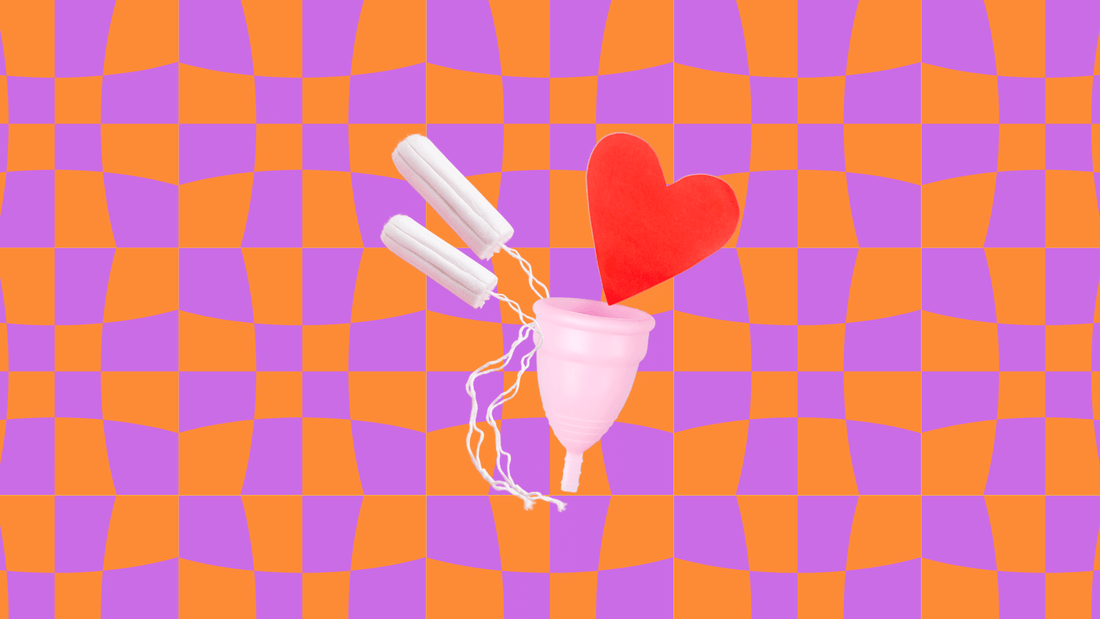
Ever wondered how your period affects your blood sugar levels? Maybe you don’t notice any differences over the course of a month. But for many women, the menstruation cycle is yet another significant factor to take into account when tackling the ever-changing demands of blood glucose levels.
So how do you figure out what your period (and the cheeky hormones it brings with it) mean for your diabetes? That’s what we’re here to explore.
First up: A recap on how menstruation works
Perhaps you haven’t given your monthly flow a second thought since your mum awkwardly sat you down to explain it in Grade 5. Or maybe you’re a period Nazi – tracking that thing to a tee (probs the case if you’re planning for a pregnancy).
Wherever you’re at, it never hurts to rehash what’s going on in your body. Here are the basics.
Your cycle will last between 21-35 days
This is different for everyone. Some women get their period more often than others, and for some it lasts longer.
It’d be great if it could fall nicely into a predictable, 30-day cycle (for planning purposes, thank you), but chances are your period won’t go out of its way to meet your demands. Research indicates that women with Type 1 Diabetes are more prone to having irregular periods, too.
In the first half, your uterus sheds its lining
The first half of your cycle is known as the follicular phase. It kicks off with your period on Day 1, and this whole bleeding situation is actually your body shedding old blood and tissue from the uterus.
Once bleeding has stopped, your uterus starts to build up a thick inner lining, preparing to house an egg. At the same time, your brain says, ‘oh heck we need an egg up in here’, and sends word to your ovaries to start making one.
They start making follicles left, right and centre, and one of these becomes the dominant follicle (i.e. a potential future child). As it grows, it produces increasing levels of oestrogen.

You ovulate in the middle
At around Day 14 (or halfway through your cycle) the high oestrogen levels in your body signal a dramatic spike in luteinizing hormone. This causes your body to release an egg into your fallopian tube, where it’ll patiently wait to get fertilised.
In the second half, hormones makes you feel like shit
The second half of your cycle is known as the luteal phase (aka ‘PMS Hell’). Your body produces a bunch of progesterone and oestrogen in this phase in an effort to support a potential pregnancy. These hormones can also cause *fun* symptoms like headaches, acne, bloating, sore boobs and general crankiness.
When you don’t get pregnant, these hormones drop and cause you to menstruate again.
WTF does this do to your blood sugar?
So female bodies do weird sh*t. What do you do with all that info?
In the days before you get your period, increased progesterone and oestrogen levels can cause you to become more insulin resistant than usual.
This is also seen in pregnancy with diabetes, particularly in the third trimester when hormone levels are at an all-time high. Many women need double or triple the amount of insulin they normally would, because that’s just what the body needs with so much estrogen and progesterone at large!
On the flip side, these hormones drop rapidly when you get your period, so you may not need as much insulin during the first few days of your cycle.
Due to the increase in oestrogen before you ovulate, you may experience insulin resistance at this time too.
How to manage it
Look for patterns
The key with managing your diabetes and menstruation is learning how it affects you. Everyone’s diabetes is different, and everyone’s cycle is different too. And to be frank, both can seem to make no sense at all.
Try this:
- Keep track of your cycle for a few months to learn how long it lasts, when you ovulate etc. (an app like Clue or Flo can help!)
- Log your blood glucose levels over the same time period.
- Compare the results, and look out for specific patterns across a typical month.
But wait! If you’re on contraceptive pills that contain oestrogen, this might change the game. Watch out for fluctuations when you change from one type of contraception to another, and chat to your doctor if you’re not happy with what’s happening to your blood sugar.

Watch out for changed behaviours
While hormones can affect blood sugar on their own, they may also affect your diabetes management vicariously through the PMS-related behaviours you adopt. For example, you might:
- Crave more sweet or carb-loaded foods.
- Not feel like exercising.
- Be preoccupied with other bodily symptoms and paying less attention to your blood sugar levels.
We’re NOT going to tell you to avoid certain foods. You can eat anything you want – particularly so when your period makes you feel like crap! It’s just useful to take into account these changed behaviours and how they may affect your decisions.
Balance out hormones with activity levels
Some people like to increase their exercise in the days before a period to specifically offset increased hormone levels.
You may not exactly feel like running a marathon each day when you’ve got cramps and tender breasts. We hear you. But trying light changes, like a walk first thing in the morning or a set of squats every few hours could help you balance your blood glucose. (As a bonus, exercise has been shown to relieve PMS symptoms too!)

Consider basal insulin adjustments
Your diabetes educator might recommend increasing your basal insulin dose in the few days before your period. Just be sure to note when your insulin requirements are likely to drop again as your hormones decrease. (NO ONE deserves to deal with a period AND a hypo at the same time.)
Managing menstruation with diabetes (or vice versa?) is all about looking at how they work together to affect YOU, and trying different techniques to see what helps. In saying that, the hormones related to menstruation generally affect blood sugar in the same way, regardless of having diabetes or not.
It can be useful to keep in mind, though, that insulin sensitivity may be highest during your period, and lowest just before.
As always, chat to your diabetes care team to get medical advice specific to your situation. And remember, whatever you do to understand what your body needs, you’re bloody brilliant for doing it. (Yep, a pun.)
Get more tips and insights about #diabeteslife by signing up to our newsletter!

